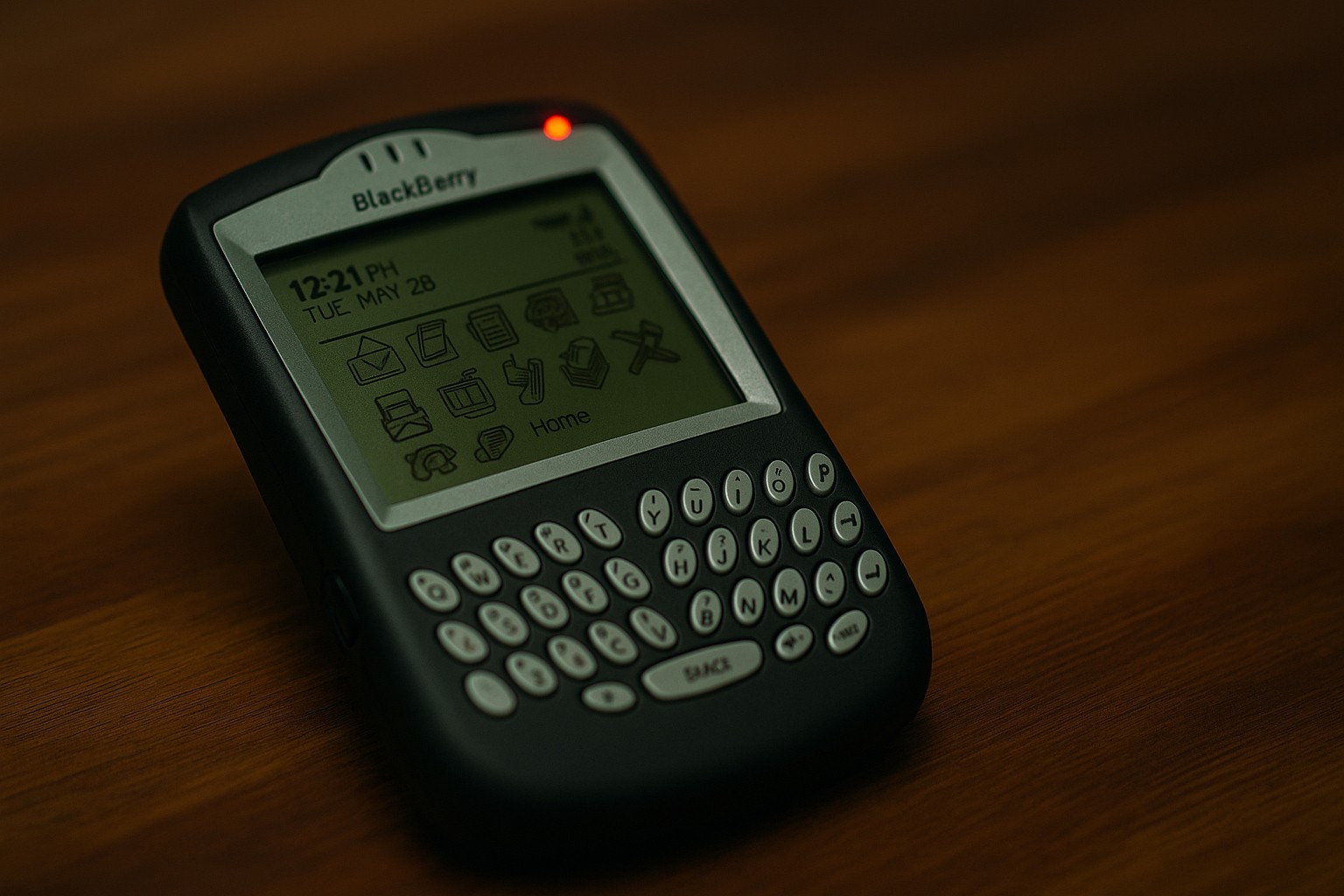In the early 2000s, a small Canadian company called Research in Motion (better known by its product name, BlackBerry) sat at the center of the mobile world. The glowing red light on a BlackBerry meant you were connected to the action. Heads of state carried them. CEOs clipped them to their belts. The physical keyboard felt inevitable, and the company’s mastery of secure email made it the gold standard for mobile communication. For a while, BlackBerry did not just participate in the market; it defined it.
The company’s co-CEO Jim Balsillie seemed untouchable. Analysts praised BlackBerry’s dominance, and Balsillie himself spoke with the confidence of someone who believed his product was invincible. In his eyes, Apple’s new iPhone looked like a toy without a keyboard and Google’s Android devices seemed scattered and unthreatening. The company doubled down on what had always worked — tighter security, faster messaging, better keyboards — while assuming the world would continue to want what BlackBerry had always delivered.
But the ground shifted. Touchscreens arrived, app ecosystems exploded and the phone stopped being a pocket inbox and became a pocket life. Users no longer wanted a better message device; they wanted a better everything device. As the market shifted, BlackBerry failed to see that the story people were telling about their phones had changed.
At the same time, Balsillie became distracted. Rather than devoting his full focus to steering BlackBerry through a volatile market, he set his sights on an unlikely prize: ownership of a National Hockey League team. Between 2006 and 2009, he poured energy and millions of dollars into failed bids to buy the Pittsburgh Penguins, Nashville Predators and Phoenix Coyotes. While his competitors were reimagining the smartphone, Balsillie was fighting the NHL boardroom.
That distraction mattered. When leadership takes their eyes off the mission (even for something that feels prestigious), the organization drifts. For BlackBerry, the drift was slow at first. But by the time it was clear the smartphone market had permanently shifted, it was too late. The signal had already begun to fade.
There is a lesson here for every leader and organization. We can get so confident in yesterday’s strengths that we miss today’s expectations. We can become so captivated by side pursuits that we lose focus on what truly matters. The result is not failure overnight but a gradual decline, as the people we serve quietly migrate to places where their needs are being met.
At Bark, our work is to help organizations avoid this drift. We help keep the mission clear while ensuring the methods evolve. That does not mean chasing every new trend. It means discerning what is essential, focusing on it and translating it into the channels people actually use today. When clarity meets change, and when leaders keep their eyes on the prize, the signal doesn’t fade. It carries.





